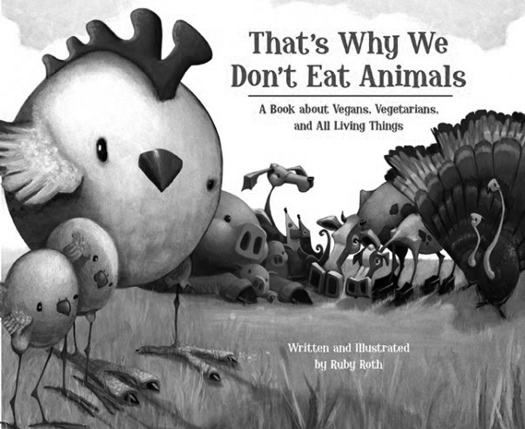I have followed reactions to Ruby Roth’s That’s Why We Don’t Eat Animals, seeking to both gage and reflect on underlying assumptions and rationales. Some of the more recent responses, the rationales on which they are based, piqued my interest. I think I have come up with an interesting basis on which to reflect.

From the number of written responses, (mis)representations, and attempts at dismissing Ruby Roth’s, there appears a common rationale. This rationale is based on rationality both in the sense that masculine rationality is the dominant western approach to epistemology and ontology — how we construct and understand the world around us — and what appears to be perceived a threat to rationality as legitimate.
Rationality is something learned. It is a mode of rationalisation imposed. Socially constructed. We are taught from early on to prioritise rationality and, conversely, to de-prioritise the emotive. To de-ligitimise the emotive, to respond to the emotive as irrational, subjective, value-laden and not a suitable means to base epistemology and ontology upon.
In response to That’s Why We Don’t Eat Animals, it is the threat to rationality’s dominance, to its social and epistemological status, that is being perceived as under threat. Complicating this, being a children’s book, there is a fear that children are being not just manipulated — which concerns are largely framed as based on. Children are still learning to de-prioritise the emotive. As a result, coupled with the excessive socialisation of the rest of (western) society, those with concerns do not have the tools and ability to respond to the emotive questions that children who have read the book pose. We apparently do not have the ability to explain, in a rational sense, to those not yet socialised to our modes of rationalisations, that being emotional is an inferior approach to understanding the world. We lack the ability to respond in their context.
To try and put it more clearly, simply, and directly(?), what I see in many of the responses to Ruby Roth’s That’s Why We Don’t Eat Animals is a serious concern based on the threat it poses to rationality in the general sense — older people feel unable to respond to and dismiss the probing questions that children ask after reading/being exposed to the content. How do you rationally claim that animals are ours to do with as we please, when those you are responding to do not (yet) accept the assumptions on which such rationalisations are based? The easily digestible understandable content provides a basis for children to challenge the status quo on their terms and in a way that we are not equipped to respond to — at least not in the context of the emotive. If we are (socialised) rationale creatures, children a emotive creatures.
From my (limited) perspective (as in I do not have children), it seems that the vegan question (even the vegetarian question) is perhaps one parents fear most — and hope to not ever face. That’s Why We Don’t Eat Animals increases the potential for such a question to be raised. As questioning authority — especially by children— leads to chaos, this book is (apparently) something to be feared…